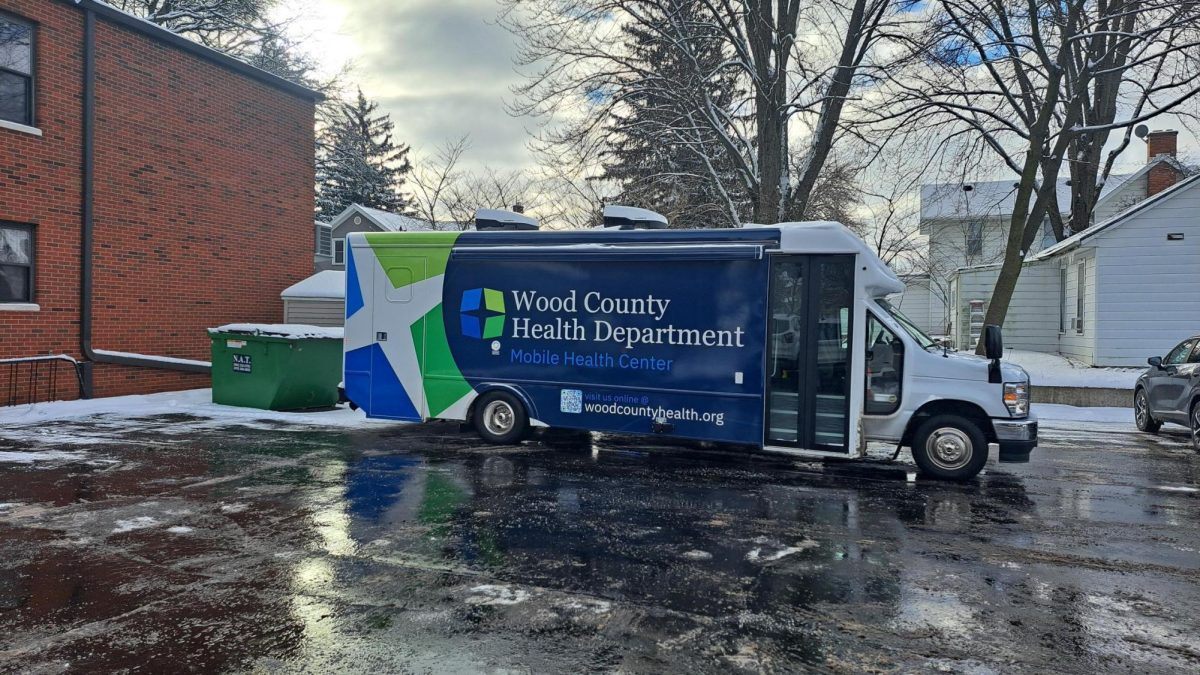Every weekend morning, city resident Todd Urwin cleans up empty beer cans and bottles from his yard. Not because he threw a party, but to pick up after the multitude of bar-goers that flock downtown and past his house on East Wooster Street.
“This time of year it’s packed with kids, one after another; it’s unbelievable,” Urwin said, who has lived at his house on the corner of Wooster and North Summit streets for 40 years. “There’s lots of noise, lots of swearing, [urinating] on property, walking on property— the usual drunk idiot stuff.”
As his house falls victim to vandalism and littering on a weekly basis, Urwin doesn’t feel the area is safe for him and his mother to live anymore.
“It’s only a matter of time before something happens,” he said. “I don’t think Mom wants to move though. Why should she let someone force her out of her home?”
As students continue to move off campus each year, one of the challenges the residents, city and University face is fostering a positive relationship between the two groups and maintaining the upkeep of neighborhoods.
This past year, the city and University tried to address this through the Joint Visioning Task Force, an attempt to strengthen relations and communications between the two.
The task force was split into separate committees that focused on different issues, from attracting new businesses to educating students on being good neighbors.
“We tried to help coordinate with efforts and identified a number of problems,” said Daniel Gordon, First Ward council member and member of the Relationship Building Committee. “The biggest problem is that there’s not as much coordination as should be. We mostly recommended action steps, but it helped jump-start the dialogue.”
While the University already has measures to educate new off-campus students, such as seminars about good decision making, it also has ways of holding them accountable for violations, said Jill Carr, vice president of Student Affairs and a task force committee member.
When a student is cited for a crime, they go through the University’s disciplinary process, which could lead to a University Conduct Committee meeting to determine punishment.
“You have to change their behavior because it’s not acceptable when you leave the University,” Carr said. “They need to learn to be productive citizens.”
While Carr stresses a proactive approach of education compared to the reactive disciplinary process, Urwin sees no other way to curb the problem.
“You can talk to a kid all day long about how he needs to be a considerate neighbor, but if he decides to go downtown, get drunk and be [a jerk], he’ll do it,” Urwin said. “The only thing you would be able to do is take a police car and sit it right there on the street. I don’t see what else you could do unless you move the bars out to the campus.”
Like Urwin, resident Ross Hess has experienced similar, but lesser offenses to her neighborhood on Baldwin Avenue, but it prompted her to make a change.
She created the East Side Residential Neighborhood Group six years ago to deal with concerns of declining housing stock and the uptick in rental properties in the area.
With 120 due-paying members today, the group focuses on “keeping the neighborhood viable and livable,” Hess said.
Each week, Hess said the group checks the blotter for nuisance parties or littering violations and sends letters to the tenants and landlords involved, educating them on the ordinances of the city.
“We tell them it’s not respectful and ask them to be better neighbors,” she said. “We’re dealing with the minority. All of the kids are great at 3 p.m. and a handful are wild at 3 a.m.”
Hess said if a problem persists, usually they are able to work with the city prosecutor, landlords, students, the University and neighbors to solve an issue.
This four-pronged outreach of students, landlords, the University and city is what Hess said makes the group effective.
“The common thread is respect for each other,” she said.
Though the task force made its recommendations more than a year ago, Mayor Richard Edwards said people will see improvements “little by little.”
“The task force may be time-consuming, but it’s important to help address east side concerns because the same concerns are applicable to the whole town,” Edwards said. “They just happen to be more pronounced on the east side.”
As efforts spread through the city and University, Edwards, Carr and Gordon said residents and students need to reach out to one another in the meantime.
For Urwin, this has been the only approach that has worked.
“I’ve talked to the kids across the street if I have an issue with them,” he said. “I go up to them and say ‘Hey, cut it out.’ They’re nice kids and they’ll do it.”
This tactic has been mutually beneficial for both sides.
Senior Chris Tsirigotis, one of Urwin’s neighbors, said he gives residents his cell phone number the morning of a party so they can call them if there are issues and he can take care of it.
“We’ll shut it down because parties can get ridiculous,” he said.
Because of this cooperation, Urwin has let his neighbors borrow his tools if needed.
“There’s always going to be issues,” Tsirigotis said. “[Residents] just like being talked to.”












